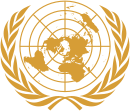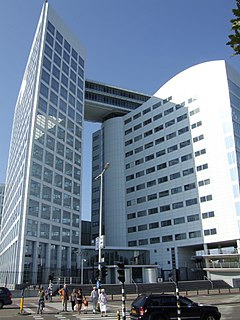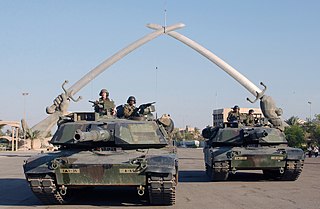| Part of a series on the |
| UN Security Council resolutions |
|---|
| Permanent members |
| Resolutions 1 to 1000 |
| Resolutions 1001 to 2000 |
| Resolutions 2001 to 3000 |
| Resolutions by topic |
| Vetoed resolutions |
| List of vetoes · Power of veto |
| UN Security Council UNBISnet · Wikisource |
This is a list of United Nations Security Council Resolutions 2001 to 2100 adopted between 28 July 2011 and 25 April 2013.
| Resolution | Date | Vote | Concerns |
|---|---|---|---|
| 2001 | 28 July 2011 | 15–0–0 | Extends mandate of the United Nations Assistance Mission in Iraq |
| 2002 | 29 July 2011 | 15–0–0 | Tightens sanctions against Eritrea and Somalia |
| 2003 | 29 July 2011 | 15–0–0 | Extends mandate of the African Union – United Nations Hybrid Operation in Darfur |
| 2004 | 30 August 2011 | 15–0–0 | Extends mandate of the United Nations Interim Force in Lebanon |
| 2005 | 14 September 2011 | 15–0–0 | Extends mandate of the United Nations Integrated Peacebuilding Office in Sierra Leone |
| 2006 | 14 September 2011 | 15–0–0 | Allows temporary judges at the International Criminal Tribunal for Rwanda to vote and stand as candidates for the presidency |
| 2007 | 14 September 2011 | 15–0–0 | Extends terms of offices for judges at the International Criminal Tribunal for the former Yugoslavia |
| 2008 | 16 September 2011 | 15–0–0 | The situation in Liberia |
| 2009 | 16 September 2011 | 15–0–0 | Establishes of the United Nations Support Mission in Libya |
| 2010 | 30 September 2011 | 15–0–0 | The situation in Somalia |
| 2011 | 12 October 2011 | 15–0–0 | Extends authorisation of the International Security Assistance Force in Afghanistan |
| 2012 | 14 October 2011 | 15–0–0 | Extends mandate of the United Nations Stabilization Mission in Haiti |
| 2013 | 14 October 2011 | 15–0–0 | Allows a judge at the International Criminal Tribunal for Rwanda to work part-time |
| 2014 | 21 October 2011 | 15–0–0 | The situation in Yemen |
| 2015 | 24 October 2011 | 15–0–0 | The situation in Somalia |
| 2016 | 27 October 2011 | 15–0–0 | Termination of military intervention in Libya |
| 2017 | 31 October 2011 | 15–0–0 | The situation in Libya |
| 2018 | 31 October 2011 | 15–0–0 | Peace and security in Africa |
| 2019 | 16 November 2011 | 15–0–0 | The situation in Bosnia and Herzegovina |
| 2020 | 22 November 2011 | 15–0–0 | The situation in Somalia |
| 2021 | 29 November 2011 | 15–0–0 | The situation concerning the Democratic Republic of the Congo |
| 2022 | 2 December 2011 | 15–0–0 | Extends mandate of the United Nations Support Mission in Libya |
| 2023 | 5 December 2011 | 13–0–2 (abstentions: China, Russian Federation) | Peace and security in Africa |
| 2024 | 14 December 2011 | 15–0–0 | Reports of the Secretary-General on the Sudan |
| 2025 | 14 December 2011 | 15–0–0 | The situation in Liberia |
| 2026 | 14 December 2011 | 15–0–0 | Extends mandate of the United Nations Peacekeeping Force in Cyprus |
| 2027 | 20 December 2011 | 15–0–0 | The situation in Burundi |
| 2028 | 21 December 2011 | 15–0–0 | The situation in the Middle East |
| 2029 | 21 December 2011 | 15–0–0 | Allows a judge at the International Criminal Tribunal for Rwanda to work part-time |
| 2030 | 21 December 2011 | 15–0–0 | The situation in Guinea-Bissau |
| 2031 | 21 December 2011 | 15–0–0 | The situation in Central African Republic |
| 2032 | 22 December 2011 | 15–0–0 | Reports of the Secretary-General on the Sudan |
| 2033 | 12 January 2012 | 15–0–0 | Peace and security in Africa |
| 2034 | 19 January 2012 | Adopted without vote | Election and vacancy at the International Court of Justice |
| 2035 | 17 February 2012 | 15–0–0 | Reports of the Secretary-General on the Sudan |
| 2036 | 22 February 2012 | 15–0–0 | The situation in Somalia |
| 2037 | 23 February 2012 | 15–0–0 | The situation in East Timor |
| 2038 | 29 February 2012 | 15–0–0 | International Criminal Tribunal for the former Yugoslavia |
| 2039 | 29 February 2012 | 15–0–0 | Peace and security in Africa |
| 2040 | 12 March 2012 | 15–0–0 | Extends mandate of the United Nations Support Mission in Libya |
| 2041 | 22 March 2012 | 15–0–0 | Extends authorization of the United Nations Assistance Mission in Afghanistan |
| 2042 | 14 April 2012 | 15–0–0 | Syria observer force resolution |
| 2043 | 21 April 2012 | 15–0–0 | Establishes of the United Nations Supervision Mission in Syria |
| 2044 | 24 April 2012 | 15–0–0 | Extends mandate of the United Nations Mission for the Referendum in Western Sahara |
| 2045 | 26 April 2012 | 15–0–0 | Modified arms embargo, diamond trade ban against Côte d'Ivoire |
| 2046 | 2 May 2012 | 15–0–0 | Reports of the Secretary-General on the Sudan |
| 2047 | 17 May 2012 | 15–0–0 | Reports of the Secretary-General on the Sudan |
| 2048 | 18 May 2012 | 15–0–0 | The situation in Guinea-Bissau |
| 2049 | 7 June 2012 | 15–0–0 | Extends mandate of expert panel monitoring sanctions against Iran |
| 2050 | 12 June 2012 | 15–0–0 | Extends mandate of expert panel monitoring Sanctions against North Korea |
| 2051 | 12 June 2012 | 15–0–0 | The situation in the Middle East |
| 2052 | 27 June 2012 | 15–0–0 | The situation in the Middle East |
| 2053 | 27 June 2012 | 15–0–0 | The situation concerning the Democratic Republic of the Congo |
| 2054 | 29 June 2012 | 15–0–0 | International Criminal Tribunal for Rwanda |
| 2055 | 29 June 2012 | 15–0–0 | Non-proliferation of weapons of mass destruction |
| 2056 | 5 July 2012 | 15–0–0 | The situation in Mali |
| 2057 | 5 July 2012 | 15–0–0 | Reports of the Secretary-General on the Sudan |
| 2058 | 19 July 2012 | 13–0–2 (abstentions: Azerbaijan, Pakistan) | Extends mandate of the United Nations Peacekeeping Force in Cyprus |
| 2059 | 20 July 2012 | 15–0–0 | Extends mandate of the United Nations Supervision Mission in Syria |
| 2060 | 25 July 2012 | 15–0–0 | The situation in Somalia |
| 2061 | 25 July 2012 | 15–0–0 | Extends mandate of the United Nations Assistance Mission in Iraq |
| 2062 | 26 July 2012 | 15–0–0 | Extends mandate of the United Nations Operation in Côte d'Ivoire |
| 2063 | 31 July 2012 | 14–0–1 (abstention: Azerbaijan) | Extends mandate of the African Union – United Nations Hybrid Operation in Darfur |
| 2064 | 30 August 2012 | 15–0–0 | Extends mandate of the United Nations Interim Force in Lebanon |
| 2065 | 12 September 2012 | 15–0–0 | Extends mandate of the United Nations Integrated Peacebuilding Office in Sierra Leone |
| 2066 | 17 September 2012 | 15–0–0 | The situation in Liberia |
| 2067 | 18 September 2012 | 15–0–0 | The situation in Somalia |
| 2068 | 19 September 2012 | 11–0–4 (abstentions: Azerbaijan, China, Pakistan, Russian Federation) | Children in armed conflict |
| 2069 | 9 October 2012 | 15–0–0 | Extends authorisation of the International Security Assistance Force in Afghanistan |
| 2070 | 12 October 2012 | 15–0–0 | Extends mandate of the United Nations Stabilization Mission in Haiti |
| 2071 | 12 October 2012 | 15–0–0 | The 2012 Northern Mali conflict |
| 2072 | 31 October 2012 | 15–0–0 | The situation in Somalia |
| 2073 | 7 November 2012 | 15–0–0 | The situation in Somalia |
| 2074 | 14 November 2012 | 15–0–0 | The situation in Bosnia and Herzegovina |
| 2075 | 16 November 2012 | 15–0–0 | Reports of the Secretary-General on the Sudan |
| 2076 | 20 November 2012 | 15–0–0 | The situation concerning the Democratic Republic of the Congo |
| 2077 | 21 November 2012 | 15–0–0 | The situation in Somalia |
| 2078 | 28 November 2012 | 15–0–0 | The situation in the Democratic Republic of the Congo [1] |
| 2079 | 12 December 2012 | 15–0–0 | The situation in Liberia |
| 2080 | 12 December 2012 | 15–0–0 | Allows a judge at the International Criminal Tribunal for Rwanda to work part-time |
| 2081 | 17 December 2012 | 14–0–1 (abstention: Russian Federation) | International Criminal Tribunal for the Former Yugoslavia |
| 2082 | 17 December 2012 | 15–0–0 | Threats to international peace and security caused by terrorist acts. |
| 2083 | 17 December 2012 | 15–0–0 | Threats to international peace and security caused by terrorist acts. |
| 2084 | 19 December 2012 | 15–0–0 | The situation in the Middle East. |
| 2085 | 20 December 2012 | 15–0–0 | The situation in Mali, including sanctions on MOJWA. |
| 2086 | 21 January 2013 | 15–0–0 | Peace keeping missions of the United Nations |
| 2087 | 22 January 2013 | 15–0–0 | The situation in North Korea |
| 2088 | 24 January 2013 | 15–0–0 | The situation in the Central African Republic |
| 2089 | 24 January 2013 | 14–0–1 (abstention: Azerbaijan) | The situation in Cyprus |
| 2090 | 13 February 2013 | 15–0–0 | The situation in Burundi |
| 2091 | 14 February 2013 | 15–0–0 | The situation in Sudan |
| 2092 | 22 February 2013 | 15–0–0 | The situation in Guinea-Bissau |
| 2093 | 6 March 2013 | 15–0–0 | Eases arms embargo on Somalia and extends AMISOM mandate for another year [2] |
| 2094 | 7 March 2013 | 15–0–0 | Sanctions to limit luxurious imports to North Korea [3] |
| 2095 | 14 March 2013 | 15–0–0 | The situation in Libya |
| 2096 | 19 March 2013 | 15–0–0 | The situation in Afghanistan |
| 2097 | 26 March 2013 | 15–0–0 | The situation in Sierra Leone |
| 2098 | 28 March 2013 | 15–0–0 | The situation in the Democratic Republic of the Congo |
| 2099 | 25 April 2013 | 15–0–0 | The situation in Western Sahara |
| 2100 | 25 April 2013 | 15–0–0 | The situation in Mali |












